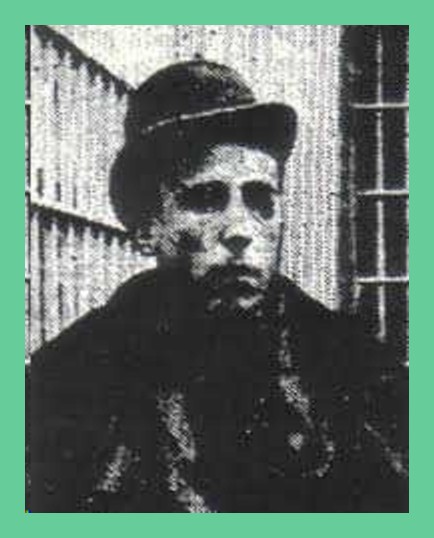WESTON MERRITT KEIPER
Weston Merritt Keiper, born in 1879, was the oldest son of William Henry Keiper and Susanna [Row] Keiper of Lykens. Weston’s father, William Henry Keiper, was a coal miner, who was described as a “large man” who had a “fondnesss for drink.” He would frequent the saloons on Friday evenings when he received his pay for work in the mines. His wife, Susanna, who was a petite woman, was not afraid to march into the saloons to drag him home so he didn’t spend all his earnings and had something left to support his family – which consisted mostly of daughters (sisters of Weston). Weston had two older sisters, both of whom had already married and started their own families, so at the time of the robbery-murder, he was the oldest child in the household and was expected to help his father support the family.
Through his father, Weston Keiper was a direct descendant of the Buffington family who were pioneer settlers of the Lykens Valley area. No doubt Weston knew of many cousins who had fought in the Civil War. His father’s older half brother was a Civil War veteran and his mother’s older brother was a member of the 9th Pennsylvania Cavalry, was later with the Regular Army in the west, and worked in the very same mines where Weston and his father worked.
At the time of the robbery-murder, the press reported that Weston Keiper was an out-of-work coal miner. Also reported was that neighbors said that Weston didn’t have a reputation for being bad. Weston Keiper’s education was limited and he dropped out of school, preferring to work rather than study. He apparently knew how to read through, because he attributed his own “bad ways” to the dime-novel-western-Jesse James books which were readily available at the time. In the jail, he was interviewed for an “educational study” conducted by a college professor who concluded that parents should be alert to what their children were reading and how it would influence their actions.
Weston’s distraught parents visited him in the jail and the press reported that they were “elderly.” Family records show that William Henry Keiper was about 50 years old at the time and Susannah [Row] Keiper was about 49 – certainly not considered elderly by today’s standards. No known pictures were taken of the family at the jail.
For his part in the robbery-murder, Weston was sentenced to death by hanging, which took place at the Dauphin County Jail on 28 January 1902, less than a year after the robbery-murder. His body was returned to Lykens by train where a private funeral was held and he was laid to rest in an unmarked grave, probably in one of the cemeteries on South 2nd Street in Lykens.
_________________________________________________
First published on the Civil War Blog, November 10, 2011.
Corrections and additional information should be added as comments to this post.
[PA009c]
